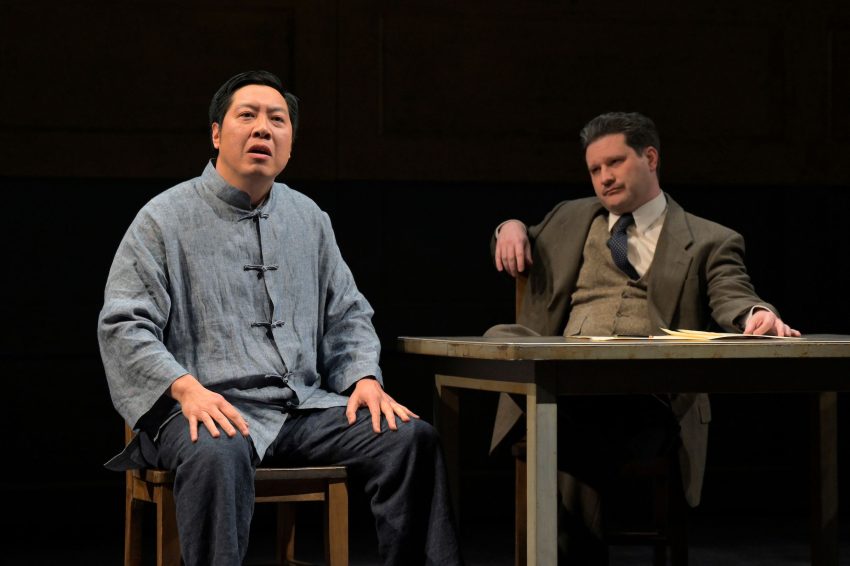
“The Far Country” Exposes Torture of Chinese on Angel Island—at Berkeley Rep
Lloyd Suh Pits Business Values vs. Ancient Human Caring
by Erin Weitzman & Barry David Horwitz
Like a mirage, the ideal country constantly eludes us. “The Far Country” shows the true cost of giving up your home. The walls of Angel Island in San Francisco Bay are covered with poems written by imprisoned Chinese immigrants. But the paint slowly peels, revealing their truths.
Their poetry relives the suffering of thousands of innocent Chinese laborers who came to build the railroads but later were abused and deported. Playwright Lloyd Suh deftly unravels their dreams and their nightmares, recalling lives lost and spoiled in drama and dance, with an imaginative, near-documentary accuracy.
“The Far Country” travels from 1909 to 1930, beginning and ending in San Francisco. Suh transports us from California to China and back, exposing the cruelties of the racist “Chinese Exclusion Act” (1882-1943). For 60 years, Asian immigrants were imprisoned and flimflammed over “race.”
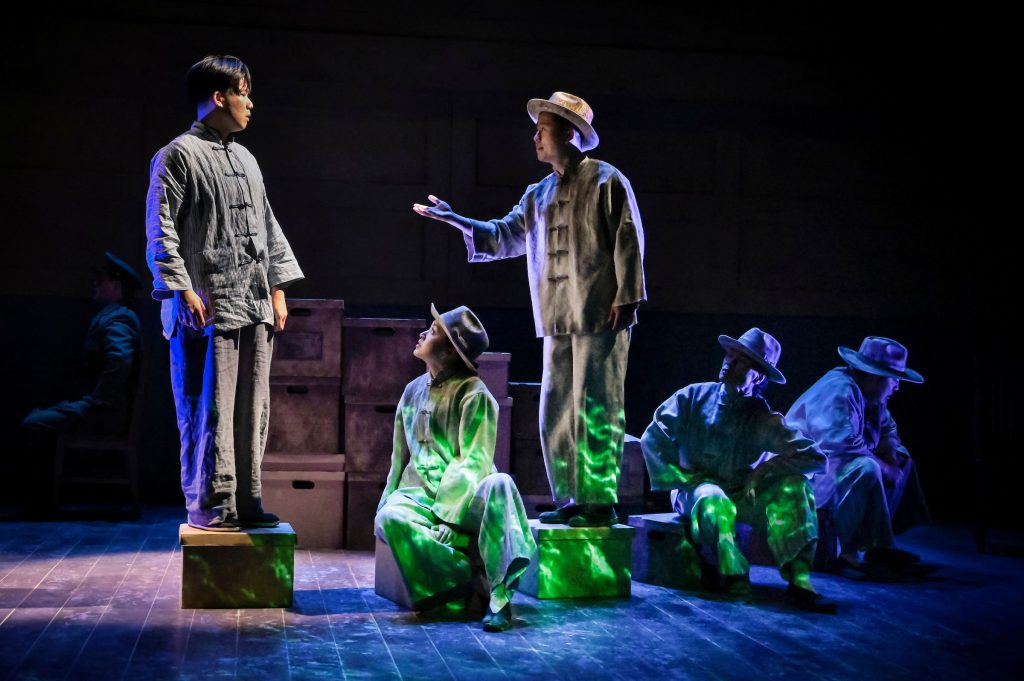
Suh powerfully presents the struggle between callous officials and a San Francisco laundry worker named Gee (exuberant Feodor Chin). In a grim interrogation room, a heartless officer (Aaron Wilton) badgers Gee, while he plays the accommodating “Chinaman” and friendly countryman. Gee takes a performer’s delight in his adopted country—which is trying to deport him.
On Angel Island, we see the trials and abuse that every Chinese immigrant suffers. The Chinese Exclusion Act empowered officers to arbitrarily imprison the Chinese, the latest targets of US racism. The boxes onstage stand for years of lawsuit and appeals. Although the prison sequence runs long, the beautiful choreography on the stacked boxes captures our imaginations.
After the 1906 earthquake, Gee needs a worker/son for his thriving laundry business in San Francisco. He returns to his village in China to bargain with a Chinese mother for her only son. In a mesmerizing encounter, sharp mother Low (formidable Tess Lina) debates with the American. She exposes Gee’s ambivalence about his U.S. home. Their confrontation leaves us breathless.
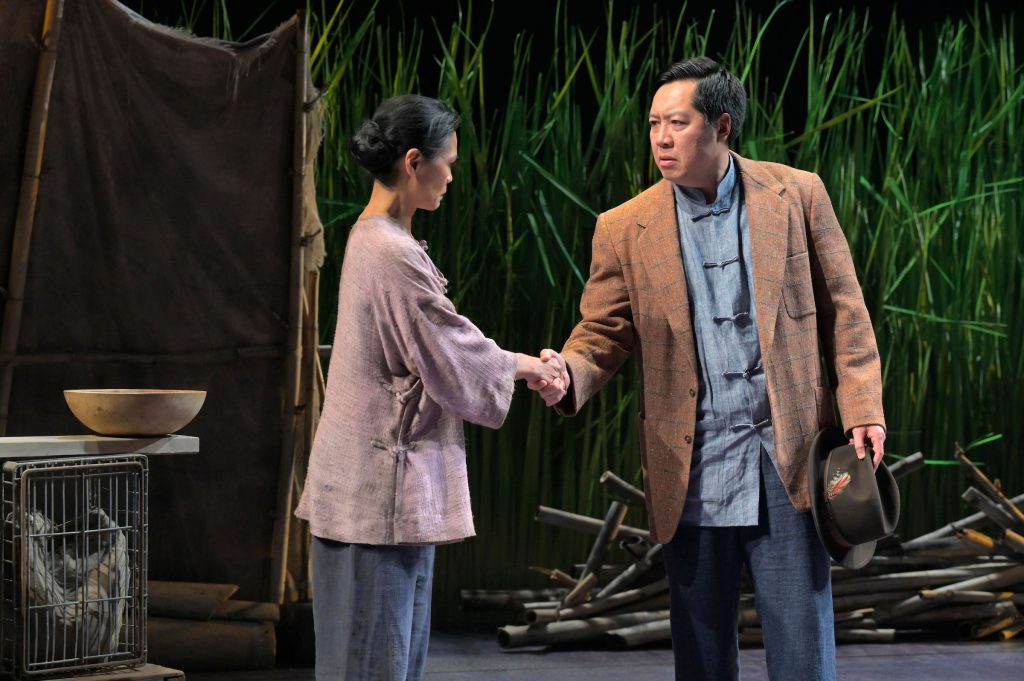
Low sees through Gee’s American schemes, as she battles powerfully for her son’s future. Lina beautifully embodies Low’s desperation and her disdain for Gee’s profit-making schemes. She captures the tragedy of a poor, single mother forced to give up her son Moon Gyet (Tommy Bo). But she’s no pushover. She wants her son to maintain his Chinese honor and dignity, rather than succumbing to soul-sucking profiteering.
Ten years later, back in China, Moon, the “son,” Americanized in a stiff suit, comes home to visit his mom. Mother and son engage in a testy and heartbreaking debate. His mother accuses Moon of swallowing American selfishness and greed.
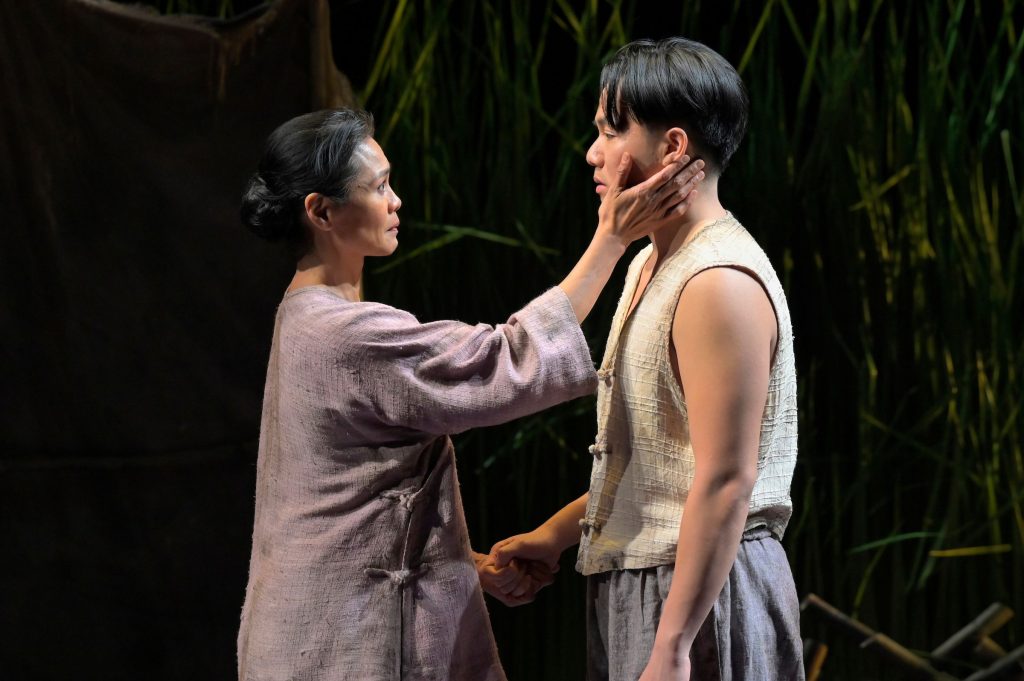
When Moon tries his own American style deal on a feisty village girl named Yen (intriguing Sharon Shao), he meets his match. Shao gives a powerful performance as a not-so-naïve young girl who is negotiating for her future. She speaks boldly, exposing the hypocrisy of the Americanized son.
Packed with exciting acting and emotional scenes, “The Far Country” displays our conflict between traditional cultures and business values. The play pits past against present, home vs. hopes, family vs. opportunity. We learn so much about ourselves from Suh’s shocking exposure of our real, historical stories.
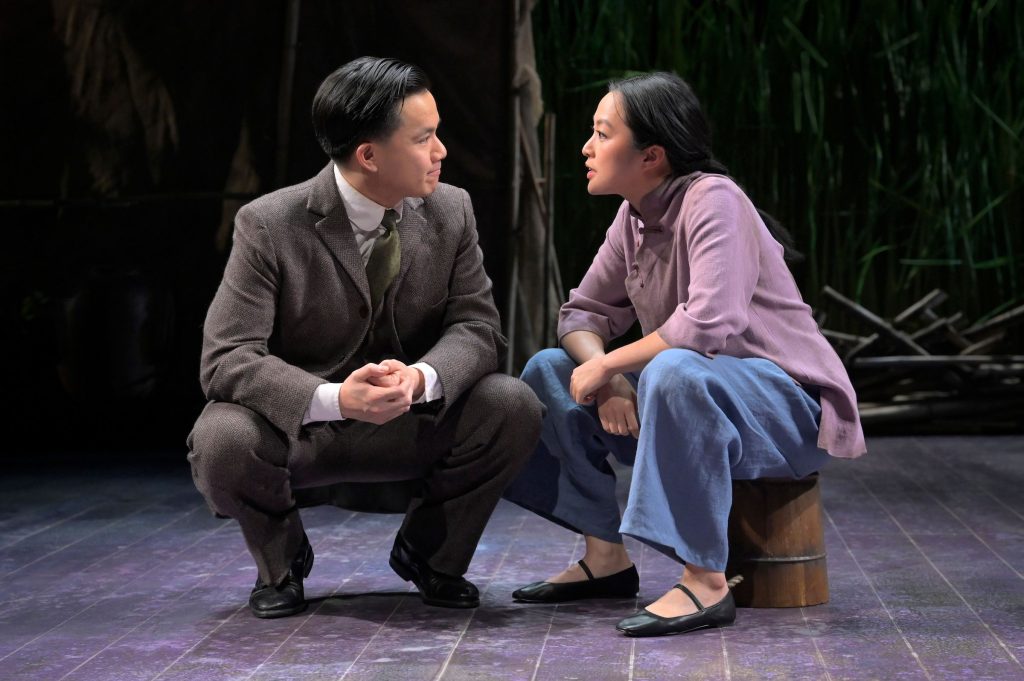
“The Far Country” by Lloyd Suh, directed by Jennifer Chang, scenic design by Wilson Chin, costumes by Helen Q. Huang, lighting by Minjoo Kim, sound by Fan Zhang, projections by Hsuan-Kuang Hsieh, movement by Erika Chong Shuch, at Berkeley Repertory Theatre. Info: berkeleyrep.org – to April 14, 2024.
Cast: Tommy Bo, Feodor Chin, John Keabler, Whit K. Lee, Tess Lina, Sharon Shao, and Aaron Wilton.
Banner photo: Feodor Chin & Aaron Wilton. Photos: Kevin Berne